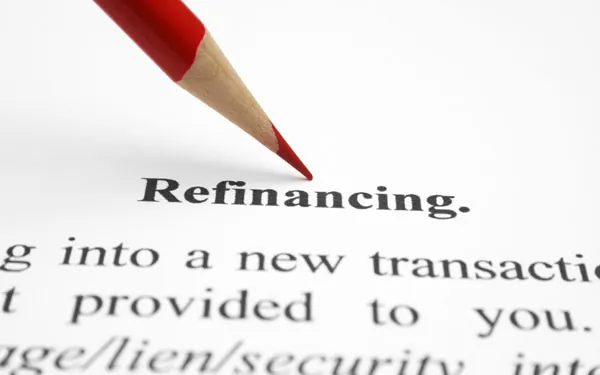by Brentt Taylor
Refinancing refers to the process of replacing an existing mortgage with a new one. However, this new debt obligation has different terms. The purpose of mortgage refinancing is to reduce monthly payments and lower interest rates. Mortgage refinancing pays off the old loan using the proceeds of the new one.

The Main Benefits of Mortgage Refinancing
• Lower Interest Rates
Refinancing allows individuals to redefine their mortgage based on changes in financial status and interest rates. Refinancing allows people to change the terms and the rates on the loan. This is considered a good option to save money.
• Home Equity Access
People also gain access to the equity in their home without the need to take out a separate loan agreement. With refinancing, individuals can withdraw from their equity, and the money withdrawn can be used for home improvement projects or to pay off other debts. Refinancing also allows individuals to extend their mortgage terms. It is also possible to negotiate a lower interest rate. The withdrawn equity can be used to reduce or eliminate other debts. In the long run, people can save a huge amount of money by refinancing.
• Improve Credit Scores
Refinancing is also one way to improve credit scores. A credit report shows when a mortgage is paid in a timely and regular manner. However, individuals need to take note that mortgage refinancing does not have an immediate effect on their credit score. It usually takes time.

Who is qualified for refinancing?
There are a few things that the lender takes into consideration. These include the assets, debts, property value and the desired amount the homeowner wants to borrow. Once these things are considered, it is important for the homeowner to see if they really qualify for lower rates as this can either make or break refinancing structures.
An individual’s credit score will also play an important role in getting a mortgage refinancing application approved. Strong credit score can provide greater chances of getting better terms and lower interest rates.
Is it always good to refinance a mortgage?
Mortgage refinancing can be a good idea when people want to reduce current interest rates. Those who are considering switching to a short term mortgage can also opt for refinancing. Individuals can pay off their debts sooner if they consider refinancing.
When is it not good to refinance a mortgage?
Mortgage refinancing may not be a good idea when people have had their mortgage for a long period of time. The person opting for mortgage refinancing may have to restart the amortization process, and most of the monthly payments will be used for paying interest instead of building equity.
It is not also a good idea to choose mortgage refinancing when an existing mortgage has a prepayment penalty. A prepayment penalty refers to a fee that lenders charge when mortgage is paid off early. People interested in refinancing should ask whether or not it is possible to waive the prepayment penalty.
People who are planning to move from their home in the next few years should not consider mortgage refinancing. It is important to consider a break-even calculation to determine whether or not it is best to refinance.

What are the outright costs involved with refinancing?
• Title Fees
The title insurance is required to protect the owner and the lender as well. It ensures a clear title and provides protection against forgery or fraud. More often than not, homeowners have already paid for a title insurance policy during the time when the property was initially purchased. They do not usually want to pay for it a second time. The title costs also include express mail, courier fees, and recording and notarization fees.
• Lending Fees
The fees that include charges for processing a mortgage are known as lending fees. This includes document preparation, funding and administrative fees, tax service and underwriting fees. Homeowners will need to prepare up to $850 to cover all of these fees.
• Appraisal fees
The standard appraisal fee ranges between $300 and $400. There are also forms to be completed such as the operating income statement and rental survey.
• Points
There are two categories that points fall into. This includes origination fees and discount fees. Discount fees refer to prepaid interest that homeowners choose to pay in advance. This is often used to buy down the mortgage’s interest rate. Origination fees are the ones used for buying the rate down. They are often used for mortgage originator compensation.
• Credit fees
Homeowner’s credit report needs to be reviewed. The fees can range from $25 to $65 per person. Higher fees can be incurred if the reports are erroneous or inaccurate.
• Insurance fees
It is also important that the homeowner has an up to date insurance policy. Lenders usually require homeowners to secure a policy that is effective for a period of no less than four months upon the date of first payment.
• Taxes
Property taxes payments can be arranged on an annual or semiannual basis.
When shopping for a loan is not a good idea.
If refinancing is a not a good idea, it is important to consider both interest rates and costs when shopping for a new loan. Once lenders receive your loan application, they are required to provide a closing cost estimation. Individuals interested in getting a new loan should also ask for additional information in writing about any loans they are interested in. More information about mortgage refinancing here.
Here are some related articles:
Save this article to:
back to top